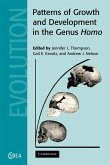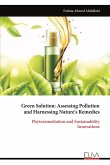The collective understanding of plant responses to abiotic stresses, including hypoxia, flooding, drought, cold, heat, salinity, and light variations, emphasizes the dynamic and complex nature of metabolic adaptations. Hypoxic stress, exemplified by low cellular oxygen due to events like flooding, triggers significant metabolic shifts in plants, as observed in Arabidopsis seedlings. These shifts are characterized by a substantial alteration in metabolites during the stress phase and a gradual return to baseline levels upon reoxygenation, highlighting the flexibility of plant metabolism. Similarly, an untargeted metabolomics approach revealed distinct metabolic responses across various abiotic stresses, including temperature and water deficits, with changes in central metabolism pathways such as amino acid and sugar metabolism, glycolysis, and the TCA cycle. These responses include both stress-specific and shared metabolic signatures, underscoring the importance of oxidative stress and the critical roles of protein and starch autolysis in early stress responses. Moreover, the application of metabolomics techniques offers insights into the rewiring of plant central metabolism under stress conditions, serving as a hub for maintaining metabolic and energy homeostasis. This comprehensive overview underscores the challenges and emerging insights in utilizing metabolomics to understand plant adaptation and resilience to abiotic stresses, highlighting the need for further research to elucidate the metabolic mechanisms underlying plant stress responses and recovery processes.
Hinweis: Dieser Artikel kann nur an eine deutsche Lieferadresse ausgeliefert werden.
Hinweis: Dieser Artikel kann nur an eine deutsche Lieferadresse ausgeliefert werden.








